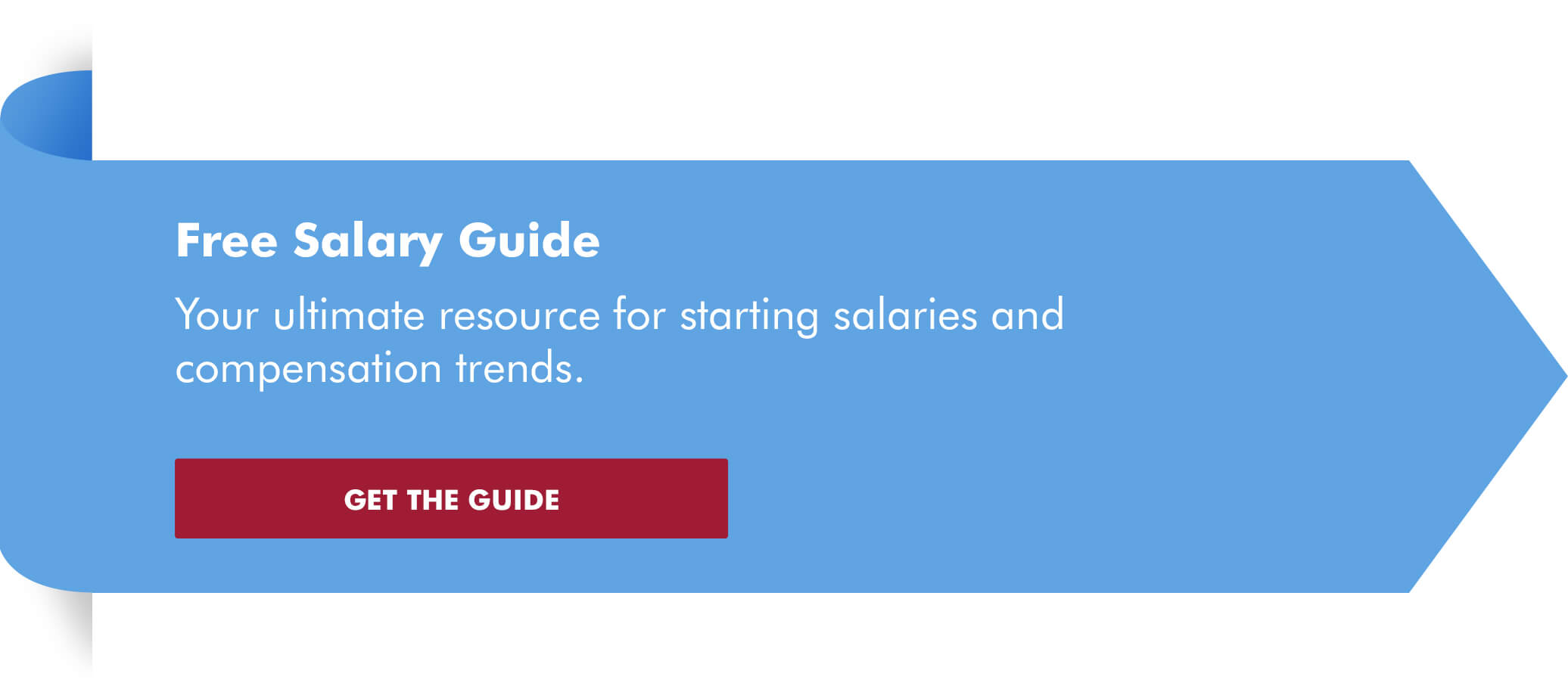As our lives become more digitized, software engineers — the creative and technical minds behind the computer programs, applications and systems that power everything from spacecraft to smartphones — are more sought after than ever. Highly skilled software engineers can earn robust compensation today, and the need for these specialized skills across industries can help drive salaries for software engineer jobs even higher over the next few years.
So, if you’re a talented coder and a natural problem solver, software engineering could be the career for you. This post answers basic questions about this role, including:
- What does a software engineer do?
- What type of starting software engineer salary should you expect?
- How do you become a software engineer?
- How long does it take to become a software engineer?
- What does it take to succeed as a software engineer?
Let’s start from the top, with an overview of typical responsibilities for software engineer jobs.
What does a software engineer do?
Simply put, software engineers write software according to engineering principles. That means they come up with elegant and robust solutions to what are often complex problems.
These tech pros are often given the freedom to be bold and creative in their work. They will frequently question — and, if necessary, revise — the original project specifications. This distinguishes them from software developers, who typically work within a predefined set of requirements.
The day-to-day responsibilities of a software engineer may include:
- Designing engineering specifications for software programs and applications
- Working with the quality assurance team to develop software test plans
- Collaborating with hardware engineers to assess and test hardware and software interactions
- Implementing a specific development methodology
- Documenting software specifications
Candidates for this position should have broad information systems experience and strong critical-thinking and problem-solving skills. They should be adept at programming and working in a team environment and possess excellent communication skills. Software engineers are also expected to produce well-organized, optimized and documented source code quickly.
What type of starting software engineer salary should you expect?
Refer to the Salary Guide From Robert Half to see projected salaries for software engineers based on levels of skills and experience.
As with most jobs, the level of compensation professionals can earn in software engineer jobs can vary depending on where they work. Our Salary Calculator can help you get an idea of the starting software engineer salary you could potentially earn in your market.
How do you become a software engineer?
Most employers expect candidates for this job to have a bachelor’s degree in a related field, such as computer science or electrical engineering. You also need a solid foundation in one of the major programming languages, such as Java, C++ and C#. It helps if you can show completed projects in at least one of these languages.
Employers also look for candidates with a broad range of tech skills. Depending on the job, you may need to show proficiency in:
- Linux, 3SQL and databases
- Containerization systems like Kubernetes or Docker
- Frameworks such as .NET or Ruby on Rails
Most important, you’ll need the enthusiasm and mental agility to master new technologies in record time. Software engineers never stop learning. They’re always tracking developments and engaging with other engineers. Joining relevant conversations on sites like Stack Overflow and Quora can help you keep your knowledge up to date.
How long does it take to become a software engineer?
You’ll likely need at least four years to complete your degree, plus several more years of software development experience to become a software engineer. Many employers hiring for software engineer jobs look for candidates with about five years of work experience, although this varies depending on the nature of the role.
You might start your software engineering career path in a support or analyst role, which can help you gain hands-on experience with enterprise software and production systems. Your next step might be a junior software developer job, which can provide the opportunity to build and deploy new software.
However, the quality of your experience is often more important than quantity. Employers might take a chance on an up-and-coming tech professional if you have a substantial portfolio of completed work. That’s why it’s a good idea to keep your online portfolio, like on GitHub, current with any projects you’ve worked on in your spare time.
What does it take to succeed as a software engineer?
Software engineers are problem solvers at heart. They step in where there’s no clear path forward, and they help find the best solution. To succeed in software engineer jobs, you need to be creative, curious and fearless.
A standout software engineer complements their tech abilities with excellent soft skills. They attend scrums with their team, give presentations to project stakeholders and write documentation for software. In short, you need to be an effective collaborator and an excellent communicator who knows how to get your message across both verbally and in writing.
As for what type of company you might end up working for as a software engineer, it really depends on your interests, because almost every major industry today is in need of software engineering skills. Retail, healthcare, hi-tech and government are just some examples of sectors where many employers are on the lookout for skilled and promising software engineers, and where you can build a rewarding career.








